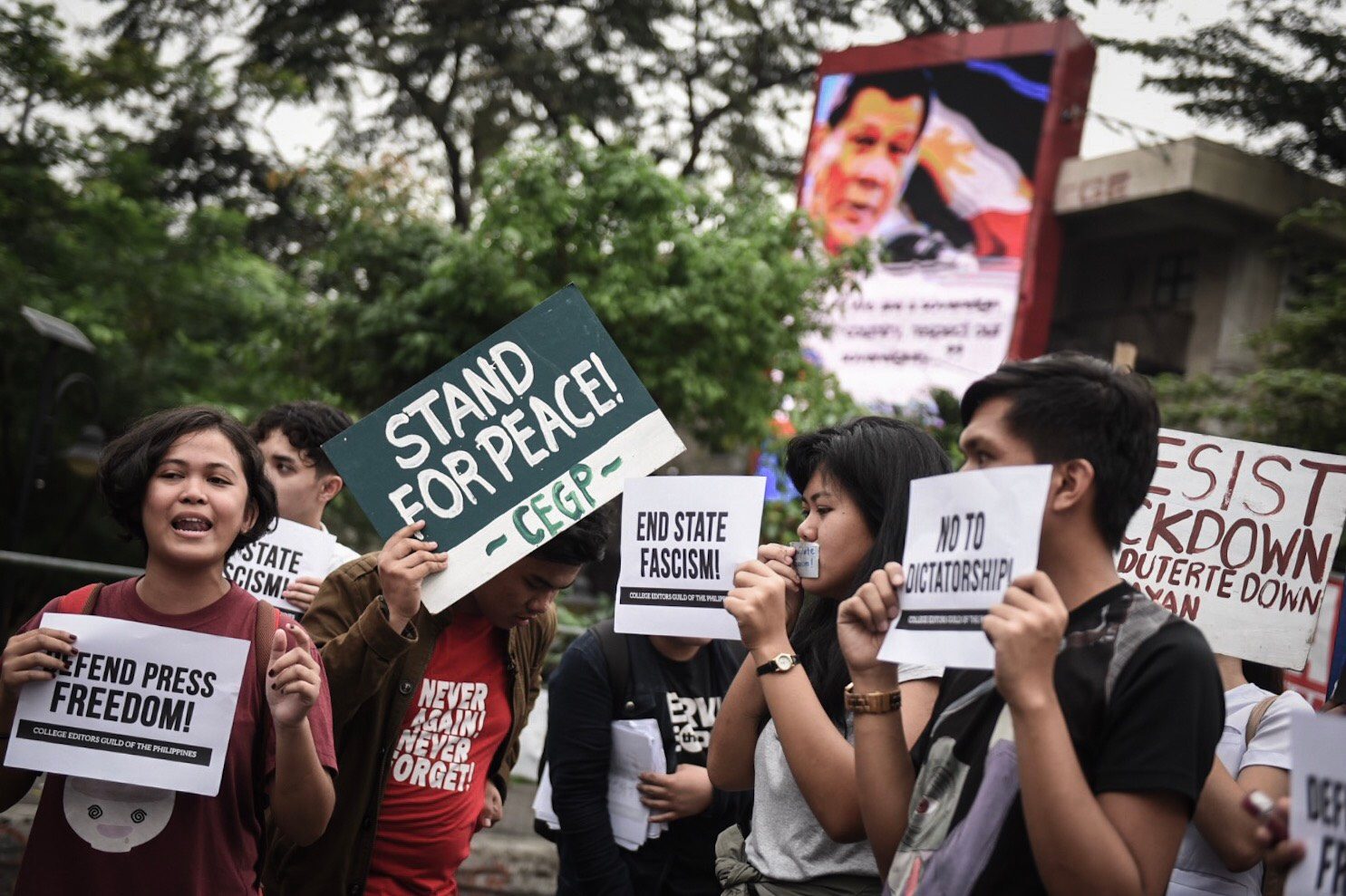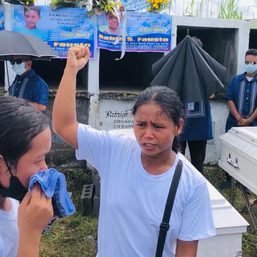SUMMARY
This is AI generated summarization, which may have errors. For context, always refer to the full article.

A global research group on Tuesday, December 8, downgraded the Philippines human rights status, as attacks on journalists and human rights defenders escalate.
CIVICUS Monitor, a global research collaboration that rates and tracks respect for fundamental freedoms in 196 countries, has downgraded the Philippines from “obstructed” to “repressed” in its People Power Under Attack report 2020.
A repressed rating means democratic freedoms – freedom of expression, peaceful assembly and association – are “severely restricted” in the country.
“The Duterte government has incrementally chipped away at civic freedoms since it came to power in 2016 but this has further eroded over the last year. In 2020, we have seen systematic intimidation, attacks and vilification of civil society and activists, an increased crackdown on press freedoms and a pervasive culture of impunity take root,” said Josef Benedict, Asia-Pacific Civic Space Researcher for the CIVICUS Monitor.
The CIVICUS Monitor said it is extremely concerned about attacks on human rights defenders and journalists, the vilification and criminalization of activists, the assault on press freedom, and the anti-terror law.
Rappler CEO Maria Ressa and former researcher Rey Santos were found guilty of cyber libel in June. Top broadcaster ABS-CBN, which also drew the ire of President Rodrigo Duterte, was forced off air in May and lost its franchise renewal bid in Congress in July.
“The shutdown of a major outlet, ABS-CBN, is shocking, especially during a pandemic when information is critical to saving lives. Threats and attacks against journalists have contributed to self-censorship and have had a chilling effect within the media sector. On top of this, there are serious concerns that the new anti-terrorism law, which has few safeguards, will institutionalize and facilitate an abuse of power,” said Benedict.
The organization said similar attacks on civic freedoms have been recorded in other parts of Southeast Asia, such as in Vietnam, Cambodia, Myanmar, Thailand, and Malaysia. – Rappler.com
Add a comment
How does this make you feel?

![[ANALYSIS] Crisis of the West, opportunity for the rest?](https://www.rappler.com/tachyon/2024/07/20240715-crisis-of-the-west-opportunity-for-the-rest.jpg?resize=257%2C257&crop_strategy=attention)
![[OPINION] Choosing a president](https://www.rappler.com/tachyon/2024/07/Choosing-a-President-July-9-2024.jpg?resize=257%2C257&crop=300px%2C0px%2C1080px%2C1080px)
![[Edgewise] Authoritarian mass delusion puts US democracy at risk](https://www.rappler.com/tachyon/2024/06/authoritarian-mass-delusion-us-june-18-2024.jpg?resize=257%2C257&crop_strategy=attention)






There are no comments yet. Add your comment to start the conversation.